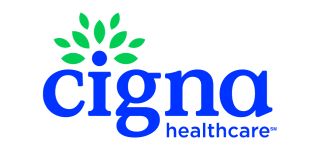We understand that all people have unique needs. At Quest, we create a personalized treatment plan for each individual, tailored to your specific situation and concerns. Your personalized treatment plan will be updated as the treatment progresses to best serve your individual needs.
Ask us about discounts for veterans and frontline workers.

We are now in-network with the largest providers, including Blue Cross Blue Shield with Regence and Premera , Aetna, Cigna, FirstChoice Health, and Kaiser PPO (First Choice Health). Other insurance companies may cover your treatment, and we can check your benefits to see if you qualify for out-of-network treatment.
After checking your benefits, you will receive an upfront estimate for the total cost of your treatment. You will never receive any surprise bills after your treatment. We have not received any benefit coverage denials for the services we provide from the insurance companies that we are currently in-network with.





We offer financing in partnership with Advance Care Card to reduce the cost burden of these life-changing treatments. Advance Care Card offers up to 14 months of interest-free financing, and the application is fast and straightforward. Please contact us for more information.
Under the ‘No Surprises Act’ You have the right to receive a good-faith estimate for the total expected cost of any healthcare items or services upon request or when scheduling such items or services. You will not be billed for amounts exceeding the estimate unless you consent to additional services. This means we will not give you any unexpected bills after your treatment, commonly called ‘surprise billing.’ If you believe you have received a surprise bill, you can file a complaint with your insurance company or seek assistance from the Department of Health and Human Services.
As part of the Consolidated Appropriations Act of 2021, the U.S. Congress enacted the No Surprises Act (NSA) on December 27, 2020. Effective January 1, 2022, the NSA includes several provisions designed to protect consumers from unexpected medical bills. These provisions establish requirements that include clear guidelines on patient cost responsibilities and prohibitions on balance billing, which restricts charging patients amounts exceeding in-network rates for certain services.
Additionally, the Act mandates that patients be informed about potential out-of-network charges before receiving care and that information regarding balance billing protections must be communicated to patients. These requirements apply to healthcare providers, facilities, and air ambulance services, covering items and services for individuals enrolled in group health plans or individual health insurance coverage, including Federal Employee Health Benefit plans. Furthermore, the NSA requires providers to provide Good Faith Estimates to patients who do not have insurance or are not using it, and a patient-provider dispute resolution process may be available to address any billing issues.
Under Section 2799B-6 of the Public Health Service Act and it’s implementing regulations, health care providers, health care facilities, and providers of air ambulance services are required to provide a good faith estimate of expected charges for items and services to individuals who are not enrolled in a group health plan or group or individual health insurance coverage, or a Federal health care program, or a Federal Employees Health Benefits (FEHB) program health benefits plan (uninsured individuals) or not seeking to file a claim with their group health plan, health insurance coverage, or FEHB health benefits plan (self-pay individuals) in writing (and may also provide it orally, if an uninsured (or self-pay) individual requests a good faith estimate in a method other than paper or electronically), upon request or at the time of scheduling health care items and services.
Balance billing, sometimes referred to as surprise billing, occurs when you see a doctor or healthcare provider and owe certain out-of-pocket costs, such as a copayment, coinsurance, or deductible. If you visit a provider or healthcare facility that is not in your health plan’s network, you may face additional costs or even be responsible for the entire bill.
“Out-of-network” refers to providers and facilities that have not signed a contract with your health plan to provide services. In such cases, out-of-network providers may bill you for the difference between what your plan pays and the full amount charged for a service. This practice is known as balance billing, and the amounts billed are typically higher than in-network costs for the same services. Moreover, these charges might not count toward your plan’s deductible or annual out-of-pocket limit.
Surprise billing specifically refers to unexpected balance bills. This can occur when you have little control over who provides your care, such as during emergencies or when you schedule a visit at an in-network facility but are unexpectedly treated by an out-of-network provider. Surprise medical bills can lead to significant financial burdens, potentially costing thousands of dollars depending on the procedure or service.
When you receive emergency care or are treated by an out-of-network provider at an in-network hospital or ambulatory surgical center, you are protected from balance billing. In these situations, you should not be charged more than your health plan’s copayments, coinsurance, and/or deductible. This protection ensures that you won’t face unexpected and potentially high charges for necessary care.
Learn more: www.cms.gov/medical-bill-rights
To have a Quest representative call you for up to 15 minutes of Q&A to discuss whether ketamine treatment is right for you.
If you want to contact us directly, email us at info@questketamineclinics.com, call us at (425) 654-5433 , or text us at (206) 589-5958. Please leave your name, contact information, and the best time(s) to reach you, and we will get back to you then.




We use cookies to optimize the experience of this website